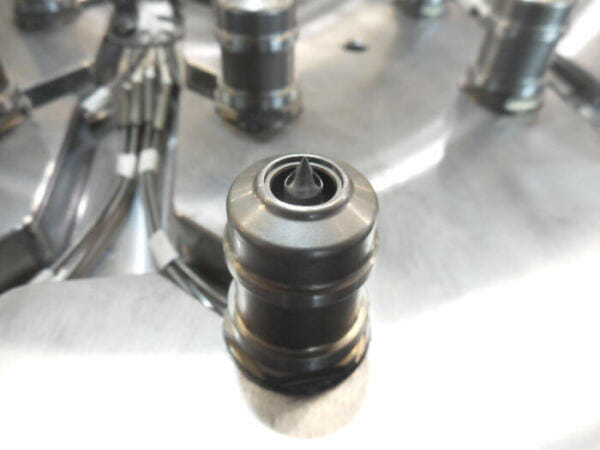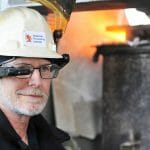Thermoplay, a business within Barnes Moulding Solutions strategic business unit, presents the solution for high cavitation moulds with frequent version changes.
The gate bushing is typically used in hot runner nozzles to preserve the gate point quality and prevent plastics wear in nozzle components. Gate bushings are also used in the event of frequent cavity plate changes. The type of gate bushing is determined based on the resin used and the application. Thermoplay is pleased to announce the ultimate generation of D-Bushing, which provides added safety, stability, and reliability to the moulding process and less energy consumption.
Double sealing
D-Bushing has been designed for the new Thermoplay TF nozzles and is equipped with a double sealing ring on the external diameter to protect the injection system from any thermoplastics leakage.
Robust protection
The external sealing diameter of the D-Bushing strengthens the nozzles while preserving the internal components from wear and possible accidental damage during assembly and disassembly operations.
Frequent maintenance
The sealing diameter close to the injection point protects the integrity of the injection system, the tips in particular, allowing easy and safe mounting and disassembling of the cavities as well as frequent changes to the mould version.
High thermal performance
The D-Bushing creates a barrier that increases the nozzle insulation and reduces the thermal dispersion, thus saving energy consumption.
No changes on nozzle pitch
The external fixing ring allows for safe assembly and disassembly operations without causing damage to the bushing and other components. The bushing can be fixed to both the nozzle plate and cavity plate by rotating the nut upward or downward. As a result of this fastening system, the bushing does not increase the minimum pitch due to the nozzle diameter.
Simple design
The design of the bushing is extremely simple and allows for wide tolerances in the layout and machining of the nozzle seating in the mould.
Process reliability
The temperature inside the nozzle is more homogeneous, and the heating is more stable with less thermal dispersion, ensuring a perfect system balance and a reliable moulding process performance.
Fast installation and maintenance
The nut is fixed axially to the nozzle bushing. By turning it clockwise, the bushing is pushed toward the nozzle until there is coupling on the sealing diameter of the tip. When the default torque is applied, the bushing is fixed to the nozzle plate. By unscrewing the ring, the bushing is disassembled. The cable outlet in the middle of the nozzle body allows for replacement of the resistance, thermocouple, and tip without disassembling the injection system.
Article courtesy of https://www.plastikmedia.co.uk








